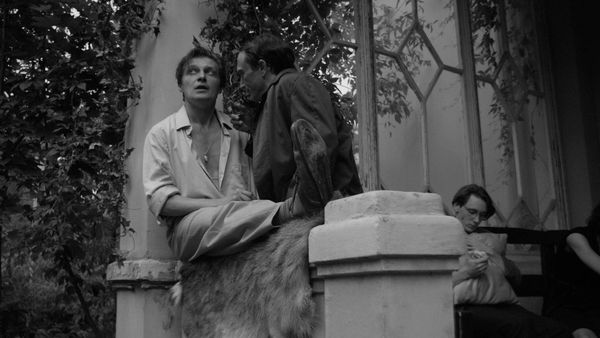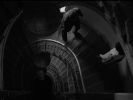Eye For Film >> Movies >> Isaac (2019) Film Review
Isaac
Reviewed by: Amber Wilkinson

The past and the present perform a circular dance in this impressive and ambitious debut feature from Lithuanian director Jurgis Matulevicius with some characters finding it impossible to escape it while others, paradoxically, discover they are unable to return to it. The film had its world premiere at Tallinn Black Nights - and deserves to have an impact on a festival circuit that has so willingly embraced other Cold War fare, such as Pawel Pawlikowski's film of that name.
The idea of circularity is present in the method as well as the content of the film, which opens with a gripping long, single take of a wartime violence - a real historical event known as the Lietukis Garage Massacre, which took place in the Nazi-occupied Kaunus of 1941, and saw between 40 and 60 Jewish citizens ritually humiliated before being slaughtered by members of the Lithuanian Activist Front. We see one man walking through the midst of the carnage, almost zombie-like and in a path that takes him full circle, and whose actions will be pivotal as the action progresses. The colour palette of the film also has a circularity, beginning in monochrome before blossoming into colour and receding back to monochrome once more.

The bulk of the film - which is adapted from a short story by Antanas Skema and carved into three parts - takes place more than two decades after the massacre, although time is elastic when it comes to the minds of the characters. It's the mid-60s and the Nazi occupation has been replaced by the less overt but no less controlling Soviet regime. Film director Gediminas (Dainius Gavenonis) is returning from exile to what seems to be a hero's welcome, but his plans to shoot a film about the Lietukis Garage Massacre are more acceptable for some than others. Most ambivalent is his old friend Andrius (Aleksas Kazanavicius), who carries a burden of guilt from the period that manifests itself in his grim work as a crime scene photographer, his borderline alcoholism and his increasingly fractured relationship with his wife Elena (Severija Janusauskaite), whose clear interest in Gediminas only fuels his woes.
With the love-triangle element of the plot gently simmering, Matulevicius also ladles in a good dose of KGB skulduggery, as increasingly obsessed officer Kazimieras (Martynas Nedzinskas) begins to wonder whether Gediminas' adaptation of the massacre isn't rather too accurate to simply be hearsay. The potential for violence and creeping paranoia haunt the film, but though some elements of it may feel murkier than others, there's always a sense that Matulevicius and his cinematographer Narvydas Naujalis are in control.
They shoot in long, fluid sequences, often from surprising angles - such as from above on a spiral staircase - in blasted industrial spaces that could have escaped from an Andrei Tarkovsky film or that travel unexpectedly, as the camera does along a line of the warped glass panes of a mental institution, adding to the tension and mood. The narrative is deliberately splintered - mirroring the lives of its characters - and the sense of what has actually occurred often left at a point of opaqueness where we might even begin to question if it is we who are being paranoid. In that, Matulevicius achieves the effect of miring us in the sort of police state climate of fear his characters are also experiencing. Nothing is certain and the past is present.
Reviewed on: 19 Dec 2019














